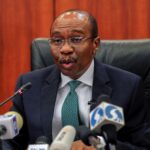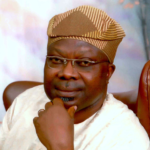Three Northern states – Kaduna, Kogi and Zamfara – on Wednesday secured Nigeria’s Apex Court order asking the Central Bank of Nigeria (CBN) to suspend the February 10 naira reissue (N200, N500 and N1000 denominations) deadline.
READ: Updated: Supreme Court Suspends Old Naira Deadline, Favours Northern States
Join our WhatsApp ChannelThat order, secured by the government of the three northern states, was more of a political knee-jerk reaction to an earlier order by an Abuja court mandating the CBN to proceed with its February 10 deadline.
Suspecting that bigger political parties had plans to buy votes with cash on February 25 and March 11 election days, four opposition parties – AA, APP, NRM and APM – had approached an Abuja court to insist that the deadline should not be extended. They had their way. But the ruling All Progressives Congress (APC) governors of three northern states – Kaduna (Mallam Nasir El-Rufai), Zamfara (Bello Matwalle) and Kogi (Yahaya Bello) – rushed to the Supreme Court to challenge it. They told the seven-man panel of the Supreme Court, led by Justice John Okoro, that their residents were suffering from the Naira redesign policy of the CBN and that the untold hardship had made it difficult for them to carry on with their daily activities.
Their lawyer, AbdulHakeem Mustapha (SAN), said that 10 days would be insufficient for the people of the states that filed the lawsuit, as banks had run out of cash for disbursement to the public.
The latest order by the Supreme Court has therefore thrown many Nigerians into confusion considering that the CBN February 10 deadline deadline was to be due barely 48 hours after the directive.
Whether the states were right in taking the matter to the apex court has also become a matter of public debate. However, Prime Business Africa had reported that the only time the Supreme Court can assume the role of court of first instance is in a dispute between states and Federal Government. The three northern states appear to have capitalised on this opening and in the process exacerbated major legal and political fireworks in the currency redesign controversy.’
Is the CBN and its Governor, Godwin Emefiele bound by the decision of the country’s Supreme Court?
Prime Business Africa spoke to some business and constitutional lawyers on the matter. Although they could not collectively agree on a single narrative on the matter, the crystalisation of their submissions as well as the provision of the CBN Act suggest that Emefiele does have an upper hand.
Section 20 of the CBN Act subjects the apex bank’s power to the President, meaning that if President is bound, then the CBN is bound. But many lawyers have argued that neither the CBN nor the President himself was joined in the matter.
The three state governments may have taken advantage of the fact that Supreme Court could act as court of first instance in the matter, given that it’s a case between federal and subnational governments.
The Attorney General cannot also issue a directive to the CBN governor on such matter as the CBN Act does not allow that. Lawyers consider the interim order as ‘an academic exercise.’
The CBN and its governor appear to be the more powerful in all of this, as only the governor would have the right to determine what should become Nigeria’s legal tender, what denominations and in what timelines to deploy them for use.
Details soon…















Follow Us